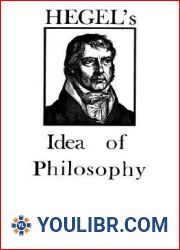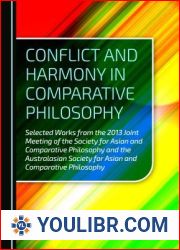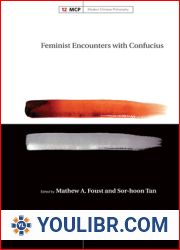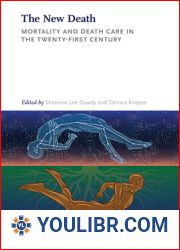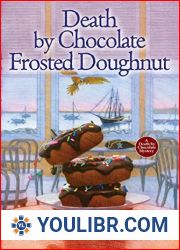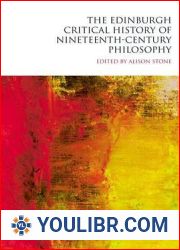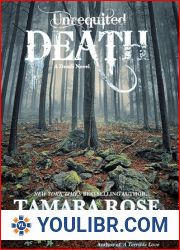
BOOKS - The Death of Philosophy

The Death of Philosophy
Author: Isabelle Thomas-Fogiel
Year: May 1, 2011
Format: PDF
File size: PDF 1.5 MB
Language: English

Year: May 1, 2011
Format: PDF
File size: PDF 1.5 MB
Language: English

The Death of Philosophy: A New Perspective Philosophers have long debated the death of philosophy, with some arguing that it is a dying discipline, while others claim that it has already met its end. In her book, The Death of Philosophy, Isabelle Thomas Fogiel takes a unique approach to this topic by examining the self-refuting nature of postphilosophical claims and the contradictions within the history of western thought. Through a systematic treatment of the subject, Fogiel uncovers the underlying patterns that have led to the current state of philosophy and offers a new perspective on its future. The Book's Thesis Fogiel begins by exploring the claims of scientism, which suggest that philosophy should be subsumed under the natural sciences. She demonstrates that these claims are self-refuting, as they rely on philosophical principles to make their case. Similarly, she critiques Rorty's skepticism and continental thought, revealing similar inconsistencies. By tracing the origins of this pattern back to late nineteenth- and early twentieth-century philosophers, Fogiel shows how both analytical and continental traditions have followed a similar path, leading to self-contradiction. This phenomenon, whether celebrated or condemned, has been understood as the death of philosophy. A New Perspective Rather than accepting the death of philosophy, Fogiel carves out an alternative path through self-reference. Drawing on the work of her French philosopher mentor, Bernard Bourgeois, she offers a fresh approach to the discipline for the twenty-first century.
Смерть философии: Новая перспектива Философы давно обсуждают смерть философии, причем некоторые утверждают, что это умирающая дисциплина, в то время как другие утверждают, что она уже достигла своего конца. В своей книге «Смерть философии» Изабель Томас Фогьель придерживается уникального подхода к этой теме, исследуя самоутверждающуюся природу постфилософских утверждений и противоречия внутри истории западной мысли. Посредством систематического лечения предмета Фогиэль раскрывает основные закономерности, которые привели к текущему состоянию философии, и предлагает новый взгляд на ее будущее. Тезис книги Фогиэль начинает с изучения утверждений сциентизма, которые предполагают, что философия должна быть отнесена к естественным наукам. Она демонстрирует, что эти утверждения опровергают сами себя, так как они опираются на философские принципы, чтобы доказать свою правоту. Точно так же она критикует скептицизм Рорти и континентальную мысль, выявляя подобные несоответствия. Прослеживая происхождение этой модели от философов конца девятнадцатого и начала двадцатого века, Фогиэль показывает, как и аналитические, и континентальные традиции пошли по схожему пути, что привело к противоречию между собой. Это явление, будь то прославленное или осужденное, было понято как смерть философии. Новая перспектива Вместо того, чтобы принять смерть философии, Фогиэль прокладывает альтернативный путь через самореференцию. Опираясь на работу своего французского наставника-философа Бернара Буржуа, она предлагает свежий подход к дисциплине для двадцать первого века.
La mort de la philosophie : une nouvelle perspective s philosophes discutent depuis longtemps de la mort de la philosophie, certains affirmant que c'est une discipline mourante, tandis que d'autres affirment qu'elle a déjà atteint sa fin. Dans son livre « La mort de la philosophie », Isabelle Thomas Fogiel adopte une approche unique à ce sujet, explorant la nature autoproclamée des affirmations post-philosophiques et des contradictions au sein de l'histoire de la pensée occidentale. Par le traitement systématique du sujet, Fogiel révèle les schémas fondamentaux qui ont conduit à l'état actuel de la philosophie et propose une nouvelle vision de son avenir. La thèse du livre de Fogiel commence par étudier les affirmations du scientisme, qui suggèrent que la philosophie doit être attribuée aux sciences naturelles. Elle démontre que ces affirmations se réfutent elles-mêmes, car elles reposent sur des principes philosophiques pour prouver qu'elles ont raison. De même, elle critique le scepticisme de Rorty et la pensée continentale, révélant de telles incohérences. En traçant l'origine de ce modèle à partir des philosophes de la fin du XIXe siècle et du début du XXe siècle, Fogiel montre comment les traditions analytiques et continentales ont suivi la même voie, ce qui a conduit à une contradiction entre elles. Ce phénomène, glorifié ou condamné, a été compris comme la mort de la philosophie. Une nouvelle perspective Au lieu d'accepter la mort de la philosophie, Fogiel ouvre une voie alternative à travers l'auto-réflexion. S'appuyant sur le travail de son mentor philosophe français Bernard Bourgeois, elle propose une nouvelle approche de la discipline pour le XXIe siècle.
La muerte de la filosofía: Una nueva perspectiva filósofos llevan mucho tiempo discutiendo la muerte de la filosofía, con algunos afirmando que es una disciplina moribunda, mientras que otros afirman que ya ha llegado a su fin. En su libro «La muerte de la filosofía», Isabel Thomas Vogiel adopta un enfoque único sobre el tema, explorando la naturaleza autoafirmada de las afirmaciones postfilosóficas y las contradicciones dentro de la historia del pensamiento occidental. A través del tratamiento sistemático del tema, Fogiel revela los patrones básicos que han llevado al estado actual de la filosofía y ofrece una nueva visión de su futuro. La tesis del libro de Fogiel comienza estudiando las afirmaciones del scientismo que sugieren que la filosofía debe atribuirse a las ciencias naturales. Demuestra que estas afirmaciones se refutan a sí mismas, ya que se basan en principios filosóficos para probar su rectitud. Del mismo modo, critica el escepticismo de Rorty y el pensamiento continental, revelando inconsistencias similares. Trazando el origen de este modelo desde los filósofos de finales del siglo XIX y principios del XX, Fogiel muestra cómo tanto las tradiciones analíticas como las continentales siguieron un camino similar, lo que llevó a una contradicción entre sí. Este fenómeno, ya sea glorificado o condenado, fue entendido como la muerte de la filosofía. Nueva perspectiva En lugar de aceptar la muerte de la filosofía, Fogiel abre un camino alternativo a través de la autorreferencia. Basándose en el trabajo de su mentor filósofo francés Bernard Bourgeois, ofrece un enfoque fresco de la disciplina para el siglo XXI.
Morte da filosofia: A nova perspectiva dos filósofos há muito tempo discutem a morte da filosofia, e alguns afirmam que é uma disciplina moribunda, enquanto outros afirmam que ela já chegou ao seu fim. Em seu livro «A Morte da Filosofia», Isabelle Thomas Vogiel tem uma abordagem única sobre o tema, explorando a natureza autodeclarada das afirmações pós-Filosóficas e as contradições dentro da história do pensamento ocidental. Através do tratamento sistemático da matéria, Fogiel revela os padrões básicos que levaram ao estado atual da filosofia e oferece uma nova visão do seu futuro. A tese do livro de Fogiel começa por estudar as alegações do scientismo que sugerem que a filosofia deve ser atribuída às ciências naturais. Ela demonstra que estas alegações se refutam, pois se baseiam em princípios filosóficos para provar que estão certos. Da mesma forma, ela critica o ceticismo de Rorty e o pensamento continental, revelando tais inconsistências. Ao traçar a origem deste modelo dos filósofos do final do século XIX e início do século XX, Fogiel mostra como as tradições analíticas e continentais seguiram um caminho semelhante, o que levou à contradição entre si. Este fenômeno, seja glorificado ou condenado, foi entendido como a morte da filosofia. Nova perspectiva em vez de aceitar a morte da filosofia, Fogiel traça um caminho alternativo através da autorreferência. Com base no trabalho de seu mentor filósofo francês Bernard Bourjois, ela oferece uma abordagem recente da disciplina para o século XXI.
Morte di filosofia: La nuova prospettiva Filosofi discutono da tempo di filosofia morte, e alcuni sostengono che è una disciplina morente, mentre altri sostengono che ha già raggiunto la sua fine. Nel suo libro «La morte della filosofia», Isabel Thomas Vogiel ha adottato un approccio unico a questo tema, esplorando la natura autodefinita delle affermazioni post-filosofiche e le contraddizioni all'interno della storia del pensiero occidentale. Attraverso il trattamento sistematico della materia, Fogiel rivela gli schemi principali che hanno portato allo stato attuale della filosofia e offre una nuova visione del suo futuro. La tesi del libro di Fogiel inizia studiando le affermazioni dello scientismo che suggeriscono che la filosofia deve essere attribuito alle scienze naturali. Dimostra che queste affermazioni si smentiscono da sole perché si basano su principi filosofici per dimostrare la loro correttezza. Allo stesso modo, critica lo scetticismo di Rorty e il pensiero continentale, rivelando tali incongruenze. Tracciando l'origine di questo modello dai filosofi della fine del Novecento e dell'inizio del Ventesimo secolo, Fogiel mostra come sia la tradizione analitica che continentale abbiano intrapreso un percorso simile che ha portato alla contraddizione tra loro. Questo fenomeno, che sia celebrato o condannato, è stato considerato la morte della filosofia. Una nuova prospettiva Invece di accettare la morte della filosofia, Fogiel apre una strada alternativa attraverso l'autoreferenzialità. Basandosi sul lavoro del suo mentore filosofo francese Bernard Bourgiois, offre un approccio fresco alla disciplina per il ventunesimo secolo.
Der Tod der Philosophie: Eine neue Perspektive Philosophen haben lange über den Tod der Philosophie diskutiert, wobei einige behaupten, sie sei eine sterbende Disziplin, während andere behaupten, sie habe ihr Ende bereits erreicht. In ihrem Buch „Der Tod der Philosophie“ verfolgt Isabelle Thomas Vogyel eine einzigartige Herangehensweise an dieses Thema, indem sie die selbstbehauptende Natur postphilosophischer Aussagen und Widersprüche innerhalb der Geschichte des westlichen Denkens untersucht. Durch die systematische Behandlung des Themas deckt Fogiel die Grundmuster auf, die zum aktuellen Stand der Philosophie geführt haben, und bietet einen neuen Blick auf ihre Zukunft. Die These des Buches Fogiel beginnt mit der Untersuchung der Behauptungen des Szientismus, die darauf hindeuten, dass die Philosophie auf die Naturwissenschaften zurückzuführen ist. e zeigt, dass diese Behauptungen sich selbst widerlegen, da sie sich auf philosophische Prinzipien stützen, um ihre Richtigkeit zu beweisen. In ähnlicher Weise kritisiert sie Rortys Skepsis und kontinentales Denken, indem sie ähnliche Inkonsistenzen aufdeckt. Indem er die Ursprünge dieses Modells von den Philosophen des späten neunzehnten und frühen zwanzigsten Jahrhunderts zurückverfolgt, zeigt Fogiel, wie sowohl die analytischen als auch die kontinentalen Traditionen einen ähnlichen Weg einschlugen, der zu einem Widerspruch untereinander führte. Dieses Phänomen, ob verherrlicht oder verurteilt, wurde als der Tod der Philosophie verstanden. Neue Perspektive Statt den Tod der Philosophie zu akzeptieren, schlägt Fogiel einen alternativen Weg durch die Selbstreferenz ein. Aufbauend auf der Arbeit ihres französischen Mentors und Philosophen Bernard Bourgeois bietet sie einen frischen Ansatz für Disziplin für das 21. Jahrhundert.
''
Felsefenin Ölümü: Yeni Bir Perspektif Filozoflar uzun zamandır felsefenin ölümünü tartıştılar, bazıları ölmekte olan bir disiplin olduğunu savunurken, diğerleri zaten sona erdiğini savunuyorlar. Isabel Thomas Fogiel, "The Death of Philosophy" (Felsefenin Ölümü) adlı kitabında, konuya benzersiz bir yaklaşım getiriyor ve Batı düşüncesi tarihindeki post-felsefi ifadelerin ve çelişkilerin kendi kendini savunan doğasını araştırıyor. Konunun sistematik bir şekilde ele alınmasıyla Fogiel, felsefenin mevcut durumuna yol açan temel kalıpları ortaya çıkarır ve geleceği hakkında yeni bir bakış açısı sunar. Fogiel, kitabın tezine, felsefenin doğa bilimlerine atfedilmesi gerektiğini öne süren bilimcilik ifadelerini inceleyerek başlar. Bu ifadelerin, kendilerini kanıtlamak için felsefi ilkelere dayandıkları için kendilerini çürüttüğünü gösteriyor. Benzer şekilde, Rorty'nin şüpheciliğini ve kıtasal düşüncesini eleştirerek benzer tutarsızlıkları ortaya koyuyor. Bu modelin kökenini on dokuzuncu yüzyılın sonları ve yirminci yüzyılın başlarındaki filozoflardan alan Fogiel, hem analitik hem de kıtasal geleneklerin kendi aralarında bir çelişkiye yol açan benzer bir yolu nasıl izlediğini gösteriyor. Bu fenomen, ister yüceltilsin ister kınansın, felsefenin ölümü olarak anlaşılıyordu. Felsefenin ölümünü kabul etmek yerine, Fogiel kendine referans yoluyla alternatif bir yol açıyor. Fransız filozof akıl hocası Bernard Bourgeois'in çalışmalarından yararlanarak, yirmi birinci yüzyıl için disipline yeni bir yaklaşım sunuyor.
موت الفلسفة: منظور جديد ناقش الفلاسفة منذ فترة طويلة موت الفلسفة، حيث جادل البعض بأنه انضباط يحتضر، بينما يجادل آخرون بأنه وصل بالفعل إلى نهايته. في كتابها «موت الفلسفة»، تتخذ إيزابيل توماس فوجيل نهجًا فريدًا للموضوع، حيث تستكشف الطبيعة الذاتية للتصريحات والتناقضات ما بعد الفلسفية في تاريخ الفكر الغربي. من خلال المعالجة المنهجية للموضوع، يكشف فوجيل عن الأنماط الأساسية التي أدت إلى الوضع الحالي للفلسفة ويقدم منظورًا جديدًا لمستقبلها. يبدأ فوجيل أطروحة الكتاب بفحص تصريحات العلماء، والتي تشير إلى أن الفلسفة يجب أن تُنسب إلى العلوم الطبيعية. وتثبت أن هذه التصريحات تدحض نفسها لأنها تعتمد على مبادئ فلسفية لإثبات قضيتها. وبالمثل، تنتقد شكوك رورتي وفكره القاري، وتكشف عن تناقضات مماثلة. من خلال تتبع أصل هذا النموذج من فلاسفة أواخر القرن التاسع عشر وأوائل القرن العشرين، يوضح فوجيل كيف اتبعت التقاليد التحليلية والقارية مسارًا مشابهًا، مما أدى إلى تناقض بينهما. هذه الظاهرة، سواء كانت مجيدة أو مدانة، كانت تُفهم على أنها موت الفلسفة. منظور جديد بدلاً من قبول موت الفلسفة، يمهد فوجيل طريقًا بديلاً من خلال المرجع الذاتي. بالاعتماد على عمل معلمها الفيلسوف الفرنسي برنارد بورجوا، تقدم نهجًا جديدًا للانضباط للقرن الحادي والعشرين.







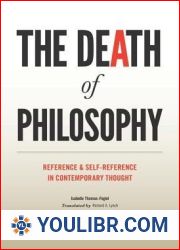
 49
49  2 TON
2 TON

